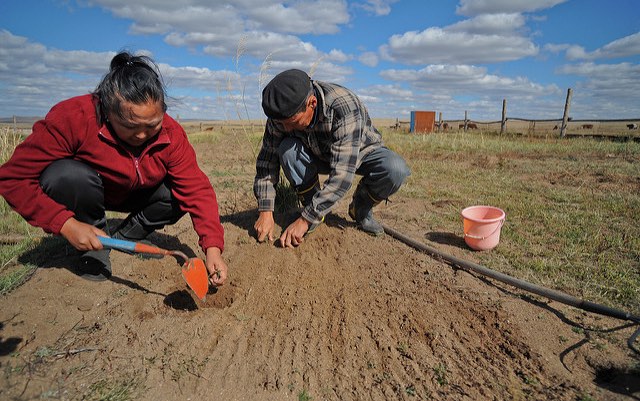The world faces a series of mounting challenges if it is to head off impacts from rising temperatures due to climate change, and the recent Intergovernmental Panel on Climate Change (IPCC) special report on warming of 1.5 ˚C warns that those impacts will escalate sooner than anticipated. But the ambitious efforts needed to control greenhouse gas (GHG) emissions may also pose a significant near-term downside risk for food security.
Our recent paper with colleagues in Nature Climate Change, based on modeling of climate and economic impacts, shows that by 2050, stringent global climate mitigation measures could have a greater negative impact on global hunger and food consumption than would the direct effects of rising temperatures and changing rainfall patterns compared to a future without climate change. The adverse impacts would predominate in vulnerable, low-income regions, such as Africa south of the Sahara and South Asia, where food security problems are already acute. These effects must be balanced against the significant longer-term benefits of robust climate change mitigation.
The paper, a collaboration with partners from 12 other institutions in the Agricultural Model Intercomparison and Improvement Project (AgMIP), shows that compared to the direct effects of the expected average climate change, undertaking ambitious global climate mitigation measures, such as carbon taxes and increased reliance on bioenergy, could increase global hunger by 2050. That may sound counterintuitive, given that higher temperatures are expected to significantly harm crop yields and trigger other shocks to food systems.
The principal issue: While limiting the effects of climate change would help agriculture and food production avoid some problems, controlling carbon emissions creates others. For example, a large-scale shift away from carbon-intensive fossil fuels to bioenergy (crops grown for fuel and to mitigate carbon dioxide emissions) would increase competition for agricultural land and other resources. This would put pressure on food availability and prices, with potentially adverse impacts on poor households in both rural and urban areas.
These results reflect the difficult tradeoffs that will need to be addressed in devising policies to combat climate change, both for the immediate coming decades and in the longer term. The study focuses on conditions in 2050, but we believe the results will eventually reverse after that. In other words, climate change impacts will intensify post-2050, hitting agriculture and food systems increasingly hard, while mitigation efforts undertaken now and in the coming decades will yield more clear-cut benefits for food systems and the world as a whole in the latter half of the 21st century and beyond.
This means that it is essential that climate change mitigation strategies be undertaken now—but also that they should be designed to minimize short-term negative impacts on food systems by carefully weighing those efforts against the substantial, longer-term benefits of robust mitigation programs.
In the near term, then, carbon emissions mitigation policies should be as robust as possible to generate long-term benefits, but also carefully designed to avoid exacerbating food insecurity. Options for policy makers to consider include, for example, targeted schemes encouraging more productive and resilient agricultural production systems. Safety net programs and other complementary policies should also be buttressed to compensate or counteract the impacts of mitigation policies, particularly in regions most vulnerable to hunger and food insecurity.
Timothy Sulser is an IFPRI scientist working with the CGIAR Global Futures and Strategic Foresight initiative (GFSF). Keith Wiebe is an IFPRI Senior Research Fellow and the leader of GFSF.







